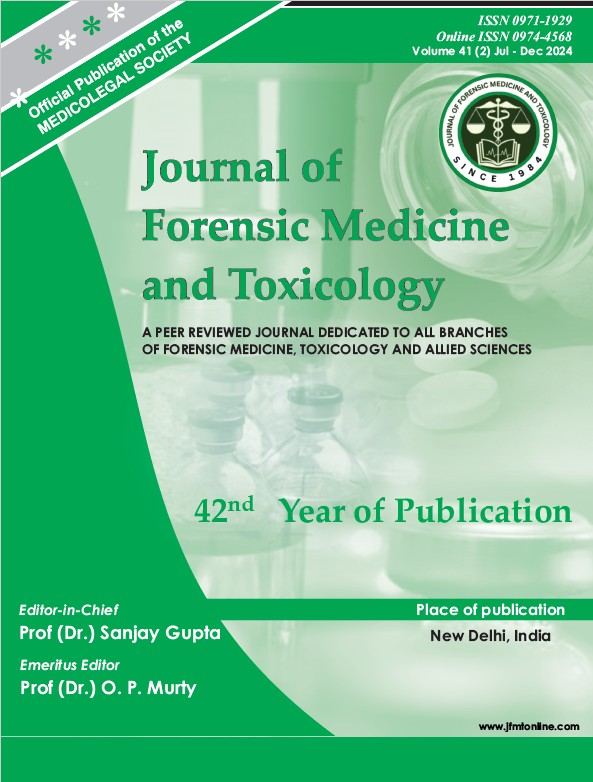UNIFORM GUIDELINES FOR POSTMORTEM WORK IN INDIA: FACULTY DEVELOPMENT ON STANDARD OPERATIVE PROCEDURES (SOP) IN FORENSIC MEDICINE AND TOXICOLOGY
Keywords:
SOP, Minimum guidelines for postmortem work, Autopsy Standards, Standard Operative Procedures for Postmortem Work, Postmortem Protocols, Autopsy Protocols, Indian forensic medicineAbstract
Skill-based forensic training has become necessity of the world to increase the practice of evidence based forensic practice. Unfortunately, many criminals are let off due to improper reporting of findings and defective workout of cases at their first contact in the hospitals and autopsy centers. In India, there are about 358 medical colleges and their training standards are different from college to college. This varied standards have created a serious gap in the forensic knowledge and practice and reasons are conflicting resource material, teaching methods, faculty development and their proper training , unplanned training of faculty, arbitrariness in the subject coverage, pattern of assessment of trainees and trainers ,inadequate human resource, poorly equipped working stations and infrastructure available.




